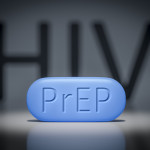Hurricane season is upon us, marking the three-year anniversary of Katrina, which ravaged the HIV-positive communities of New Orleans and the Gulf Coast. The storm displaced thousands of positive people from their homes, meds, food and child care. As of June 2008, only 68 percent of the city’s HIV-positive population had returned to their homes. Those 5,550 pos--itive returnees are struggling to get by in neighborhoods they barely recognize. As this year’s hurricane season intensifies—along with wildfire season in deadly dry California and central Florida, and the ever-present threats of floods, tornadoes, earthquakes, fires and power failures—so should the wake-up call for HIV emergency preparedness. For positive people, the daily grind of living with the virus can be challenging enough. It distracts us from planning emergency med supplies, thinking of potential evacuation routes and comfortable shelters and stockpiling the food and water needed to take meds in extreme situations. (Even small-scale mishaps, such as flooded basements or failing heat in winter, can prompt temporary relocations and muck with med regimens.) Here, meet six positive survivors who learned from their worst nightmares. They offer you some simple tricks that could make life a little more manageable when it’s coming unhinged.
FLOODS
This past June, Cedar Rapids, Iowa, was ground zero (if you could even see the ground, that is) for catastrophic flooding of the Cedar River. Though many of the city’s residents live right on the river, “no one was prepared,” says Jeff Moore, who is HIV positive and lives a few blocks from the Cedar River. “All of a sudden, it was there at our front door.”
Moore, 54, keeps a stash of his most important medications with him at all times. It’s a habit he learned from his HIV-support group.
“We came up with [the idea] for people who forget their medicines when they’re away from home or they expect to be back in time to take their medicine but something comes up,” he says. It’s a good thing, too, because Moore was at an appointment many miles away from his home when evacuation orders were issued.
“I had to call a friend to go get my dogs and my niece and nephew out of the house,” Moore says. “When I got back to town I had the clothes on my back and that was pretty much it.”
Getting more medication took a full day of filling out paperwork. Medicare initially denied Moore’s emergency reissue.
“A lot of people were in the same boat needing their emergency meds, but [Medicare] finally did it,” Moore says. “When I got situated and back into town, my HIV doctor called me and set everything up so I’m back on track again.”
Moore suggests keeping insurance papers all in one place and e-mailing or faxing medical records to a friend in high-ground places. It may not have helped him get his emergency meds quicker, but it’s better than presenting a driver’s license as a substitute for records, he says.
Moore’s AIDS service organization (ASO), the Cedar Rapids AIDS Project, is setting up a communication triage to handle emergency situations, according to Amy Wadlington, its client outreach coordinator. Disaster planning classes are open to anyone in the community, so check whether a class is available near you.
FIRES
Fallbrook, in Southern California, is a rural and picturesque village, tucked in the rolling hills near San Diego. In October 2007, wildfires torched half a million acres in the region, from Santa Barbara County in the north to the U.S.-Mexican border in the south. David Jamison, who is 67 and has been HIV positive since 1993, says a racing blaze stopped “one hill” short of destroying his apartment and everything he owned.
Now Jamison stores his family photos and keepsakes in a big plastic storage bin for easy access. But last year, as the flames approached and his landlord told him to evacuate, Jamison’s top priority was his Lhasa apso, Ribbon. He packed his dog’s stuff first. Then he laid his medicines on the center of his bed, making sure they were all accounted for.
“I got my family albums, my insurance papers and my dog’s stuff, and I was looking around at things wondering if I’d ever see all this stuff again,” he says. He then drove about 20 miles through the fire zone to his ex-roommate’s apartment—and remembered he’d left the medications on his bed. Fortunately, Jamison had a previously scheduled doctor’s appointment the next morning. And he was able to reach the office for more meds. He now keeps an emergency stash of meds in a zip-locked, waterproof bag.
EARTHQUAKES
An earthquake may last only a few seconds—but they may be the longest few seconds you’ll ever experience. John Caldera, an AIDS activist and longtime resident of San Francisco, lived through the 1989 Loma Prieta quake and its 7.1 magnitude. In 15 seconds, between 8,000 and 12,000 people were left homeless.
The biggest fear for positive people, Caldera says, is that an earthquake or natural calamity will disrupt the cycle of refilling medicine. “If an earthquake were to happen three days before I were to get my refill, I could be in a lot of trouble,” he says by phone. “Where do we get our meds if something goes wrong?”
“Prepare for yourself—and for another person,” he says. “Even if your supplies run out, you’ve got that second stash, or something to share with someone else who may not be as prepared as you are.”
San Francisco officials encourage positive people to keep at least seven days worth of medication available.
HURRICANES
To suggest that Hurricane Katrina itself devastated New Orleans isn’t entirely accurate. Many residents say they were prepared for the actual storm but not for the broken levees that followed.
“I’ve been through major hurricanes, and you go away for two or three days and you come back,” says Michael Hickerson, the HIV-positive founder of In This Together, a New Orleans ASO. “That’s what we’re used to. And we would’ve come back in two or three days had the levees not broken.”
Three years after the hurricane and levee breach, Hickerson says, “There are [HIV-positive] clients that are prepared now.” But, he adds, “there are some clients who are never going to be prepared. You encourage them as much as you can. But the single mother with five children, getting medicines together—she’s going to grab diapers first.”
To her knowledge, New Orleans resident and In This Together client Trenika Williams was HIV negative during Katrina. Now living with the virus, Williams, 28, says she understands the added burden during a stressful situation. That’s no excuse, she adds, for skimping on disaster preparation.
“A lot of the organizations are sending out publications on checklists or things you need in natural disasters,” she says. “But half of the people in this city still aren’t prepared. The government doesn’t have the responsibility to take care of you. You have the responsibility.”
Odeven Christopher, 48, was relocated to Charlotte, North Carolina, a week after the storm. Through the outreach and counsel of New Orleans NO/AIDS Task Force, he was able to re-established himself in New Orleans a month or two later.
“I liked it in Charlotte and came across the most beautiful people who had a wonderful understanding of my situation and really cared. But I wanted to come back home,” Christopher says.
New Orleans is still struggling to rebuild. Services are scattered, which makes it harder for people to get the treatment they need, Hickerson says. Housing, transportation and food assistance are “challenges that come with every disaster, but these are things we’re [always] dealing with,” Hickerson says. “We’re struggling with everyday life.”
SURVIVAL TIPS:
• Call your local ASO and find out what fact sheets and advice it provides regarding natural disasters and preparedness. For instance, the AIDS Project Los Angeles has a food and water safety fact sheet. Having your meds won’t help if there’s no food (store canned foods and nonperishables in your evacuation kit) and water to take them with.
• Store your emergency gear in an easy to carry storage unit, such as a large covered trash container, backpack or duffle bag.
• Assemble first aid kits for your home and each car. Include prescription drugs and antibiotics in case of non-HIV-related injury, and non-prescription drugs such as aspirin, antidiarrhea meds, antacids and laxatives.
• Keep family records and insurance papers in a water- and fire-proof container.
• Ask an out-of-state friend to be your “family contact.” After a disaster, it’s often easier to call long distance. Other family members should call this person and tell them where they are. Everyone must know your contact’s phone number.
• Bank with an institution that has national branches so you can access your accounts if you’re dislocated.
• Send copies of your medical records to a friend for safe keeping.
• See if your ADAP or medical plan allows for an extra, emergency supply of HIV meds.
How to...Survive a Disaster
They’ve seen fire, they’ve seen rain (and the resulting floods). Now these HIV-positive survivors of increasingly common natural disasters offer firsthand tips for weathering the perfect storm—while protecting your health, meds and sanity.






1 Comment
1 Comment